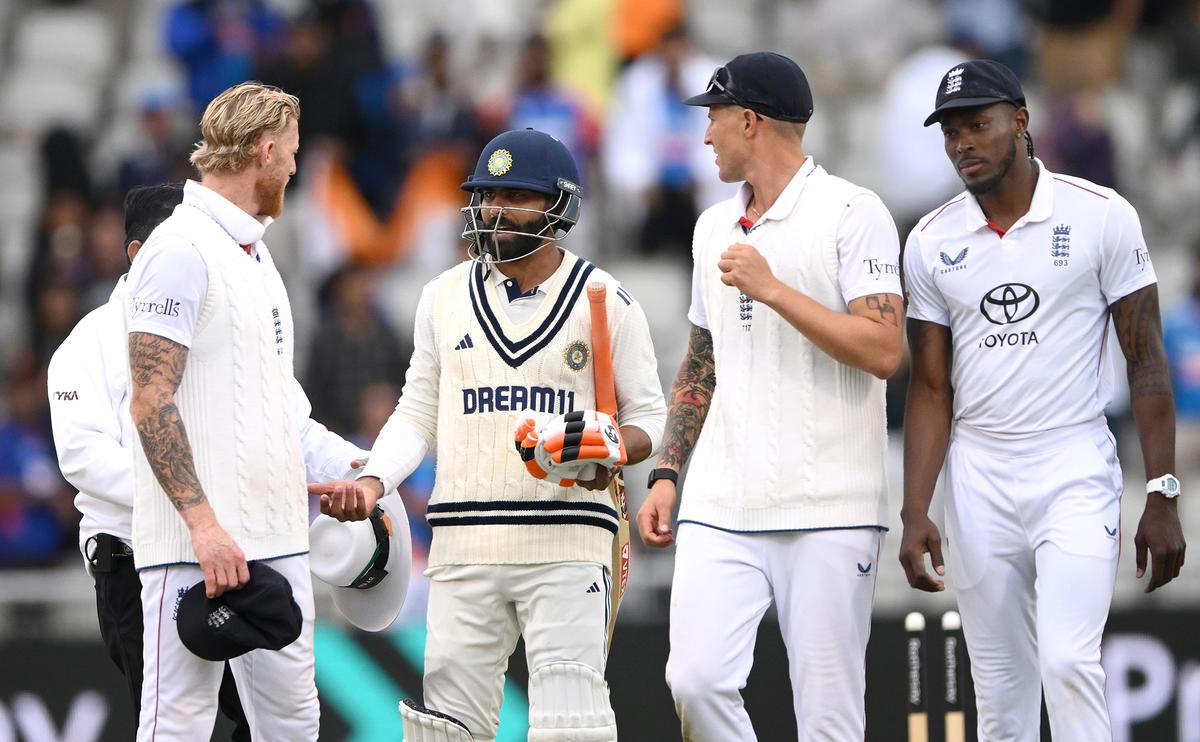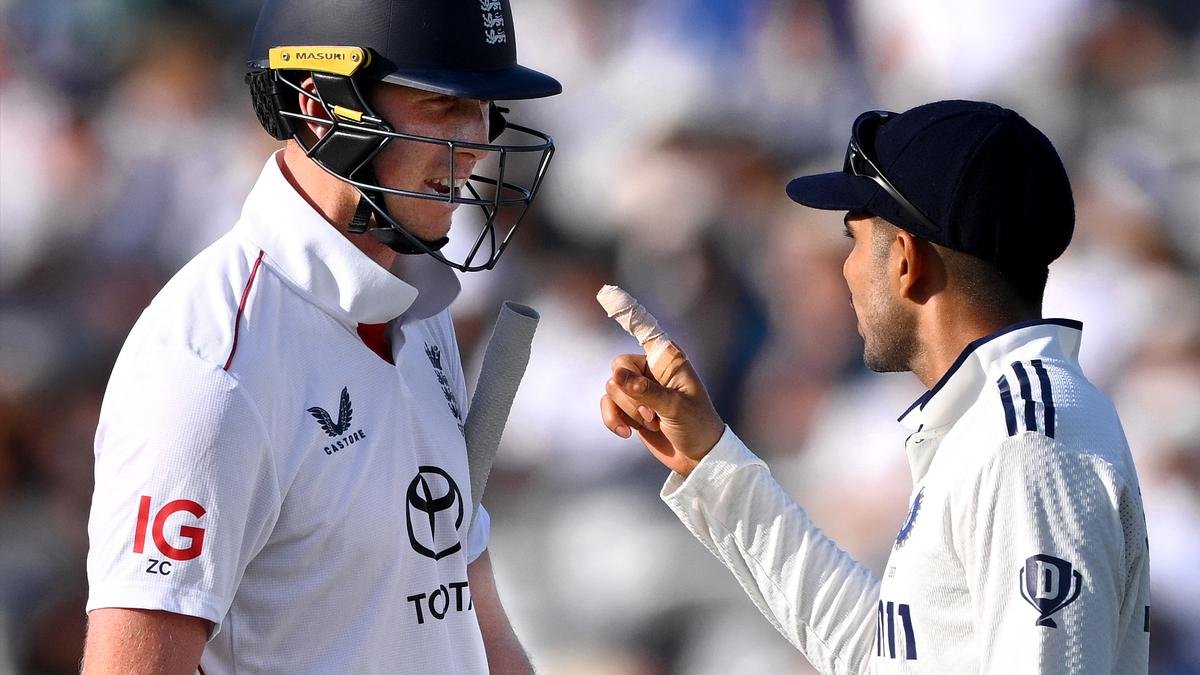Until 1845, where The Oval is now stood a market garden, with a waterworks overhanging it. Two years after The Oval came into existence, work to convert the waterworks into five gasholders began, and by 1874, they were all in place though over time, only one, called Gasholder Number One, survived.
Soon, Gasholder Number One too will pass into history. Work is already underway to redevelop it into an apartment block with a massive banner that reads ‘Iconic apartments and penthouses for sale’ proudly announcing the imminent transition. As and when these apartments are ready for occupancy, a huge slice of the past would have faded away, though it is hard to envision the gasometer being forgotten totally for a long time to come.
England, more than any other country, is proud of its investment in tradition, which is precisely why the renaming of the Pataudi Trophy as the Anderson-Tendulkar Trophy ostensibly to contextualise the modern-day rivalry so that it resonates with younger fans came as such a surprise. The disappearance of the gasometer is in keeping with changing mindsets and attitudes, one might say.
Mindsets and attitudes have definitely changed dramatically over the last 40 days of a Test series that began with so much bonhomie but has since assumed an added edge, perhaps because India have been more competitive than England might have imagined. For the first two Tests, it was normal service — lots of pats on the back, plenty of smiles exchanged, no more than the odd banter but no deathly stares and generous use of the lip. No more, not anymore.
What’s a professional contest without any needle, you say? Of course. Sport isn’t just a bland and sanitised pursuit of excellence — perfection is overrated and its pursuit futile. It is fuelled by skills and ability, undoubtedly, but also by passion and emotion. It is inevitable that, in the heat of battle with so much on the line, tempers will fray, words will be exchanged, actions that might subsequently trigger regret will manifest themselves. It’s almost a requirement of competitive sport; maybe there is some iota of truth to the ‘nice guys don’t finish first’ school of thought.
One of the reasons, the experts have insisted, for the cricket world shrinking to a global village is the proliferation of franchise-based T20 leagues across the world that allow fierce international rivals to occupy the same dressing room. That doesn’t just facilitate exchange of cricketing ideas and viewpoints, it is also helps people get to know each other better. A drink in the evening and an occasional, accidental chat in the hotel isn’t the same as sharing space for six or eight weeks, understanding backgrounds and mindsets and cultures and vision. That’s what the Indian Premier League, and other leagues of such ilk, have catalysed. Players are more respectful of each other, they get where people come from, and the scope for misunderstanding has diminished exponentially,
But that doesn’t mean that there shouldn’t be drama. That players should get on fine with each other at all times, going about their business like automatons. One isn’t advocating abuse and poor behaviour, no. But emotions can and must surface occasionally, because they are just an offshoot of the hunger, the drive, the desire, the ambition that is so important to be successful.
At the start of their home summer in May, England head coach Brendon McCullum had urged his players to ‘improve their humility’ — whatever that might mean — because of the outrage triggered by some of the comments made by his players in the media. Mark Wood, a crucial member of the England playing squad when he is not recovering from injury, conceded that they, meaning his team, could be a ‘bit dumb’ at times. Maybe McCullum’s urgings hit home, because England were slightly more ‘humble’, but only slightly more. Why else would they term India’s declaration with a lead of 608 in Birmingham ‘ridiculous?’ After, their captain had wanted to be tested by targets in excess of 500; Ben Duckett, the opener, had famously said ‘more the merrier’. It was as if India’s overseas record 336-run victory was their own fault because they had set such an impossible target; England being bowled out for 271? ‘Well, we went for it, didn’t we?’
It is little short of ironic that the first signs of the fraying of tempers expressed themselves at Lord’s, which prides itself on being the Home of Cricket. The MCC members who have exclusive access to the Long Room hadn’t covered themselves in glory two years back when they booed and abused the Australian players after Alex Carey, standing well back, ‘stumped’ a doozy Jonny Bairstow with an underarm throw off paceman Cameron Green after the batter left his ground under the mistaken impression that the ball was ‘dead’. The MCC, lest it should be forgotten, is the custodian of the Laws of Cricket and under the law, Bairstow was unquestionably out, but hey, why quibble over such minor details?
Anyway, to the present. On day three of the third Test, after India were dismissed for 387 to leave the teams dead even after their respective first innings, England had some seven minutes to negotiate before stumps. Zak Crawley and Duckett took 90 seconds longer than the norm to walk into the middle, and the former pulled out when Jasprit Bumrah was about to deliver once, before copping a blow for which he summoned the physio. That was enough for affable young captain Shubman Gill to lose his cool and urge the England opener to grow a part of his anatomy. Strike one.
The next day, on being set a target of 193, India had slumped to 58 for four. Washington Sundar’s off-spin (four for 22) was largely responsible for England losing their last six wickets for 38 runs. That evening, Washington asserted that India would ‘definitely’ win, perhaps by lunch on the final day. That was enough for McCullum to exhort his players, from the team balcony, to start chirping when Washington came out to bat on the final morning. The kid gloves were off. Strike two.
At the end of the Test, England insisted that Gill’s confrontational tactics had backfired on India. The Indian skipper clarified that while he wasn’t proud of the language he had used, what Crawley and Duckett had done wasn’t in the spirit of the game. The 25-year-old might not have intended to prick England’s ego by using the word ‘spirit’, but that was the eventual impact. Strike three.
Somehow finding their way to the moral high horse, England also dominated the cricketing exchanges in Manchester with talismanic captain Ben Stokes in the forefront. By lunch on the fourth afternoon, only one result seemed realistic; trailing by 311 in the first innings, India lost their first two wickets in the first over of the second innings without a run on the board. With 10 hours to bat out, the odds on England taking a winning 3-1 series lead weren’t that long.

| Photo Credit:
Getty Images
But through K.L. Rahul and their own inspirational leader, and then through Washington and the admirable Ravindra Jadeja, India saved the day. With chutzpah and spirit and character and spunk and ability and poise and control and dexterity. England threw everything at Washington and Jadeja for three and a half hours after lunch on day five, but they were met either by a brick wall or by a counter-attacking force, depending on the merit of the ball.
Mounting frustration
By tea, England’s frustration had mounted. Frustration that they couldn’t make any impression on the fifth-wicket pair, frustration that Joe Root had dropped Jadeja when the left-hander had yet to score. Frustration that the series win that appeared so imminent at Gill’s dismissal had slipped away, comprehensively. Frustration that even a day-five pitch gave their bowlers nothing to work with. That was largely why Stokes stretched his hand out for Jadeja to return the gesture at the start of the final hour, which would have formalised a stalemate.
Jadeja had battled through to 89, Washington was on 80 with a first Test ton never more deserved. India were well within their rights to ignore that outstretched right hand and bat on to individual milestones but apparently, that didn’t go down well with Stokes’ moral compass. He and some of his teammates taunted the two Indian batters, who barely looked in their direction to add to the hosts’ sense of helplessness. England’s petulance and lack of grace has since been pilloried across the board. On Wednesday morning, the eve of the final Test, Stokes appeared contrite though he said he had ’no regrets’. “Let’s just try our best not to focus too much on a 20-minute period of cricket,” he insisted. “It’s been such a good series so far.”
It sure has, though Stokes will have no say in the denouement. The all-rounder has been ruled out of the decider with a muscle tear in his right shoulder which should take between six and seven weeks to fully heal. It’s a carping shame, his absence, because on the giant metaphorical stage that this series has been, Stokes has been the principal, compelling protagonist bar none, though there have been numerous other extraordinary characters, not least the impossibly brave Rishabh Pant and Stokes’ commendable counterpart.
The final Test will be poorer for Stokes’ no-show. When he is in action, he commands attention because you never know when a piece of magic will unfold. With the ball, Stokes has bowled himself to the ground – even in Manchester on the last day, with his shoulder clearly bothering him immensely, he bowled eight successive overs – and with the bat, he was just beginning to find his bearings. In the field, he makes the impossible appear commonplace. Gasholder Number One would have loved one final glimpse of Stokes in Test cricket this summer – it isn’t in a minority – but sport doesn’t always throw up fairytales, does it?
